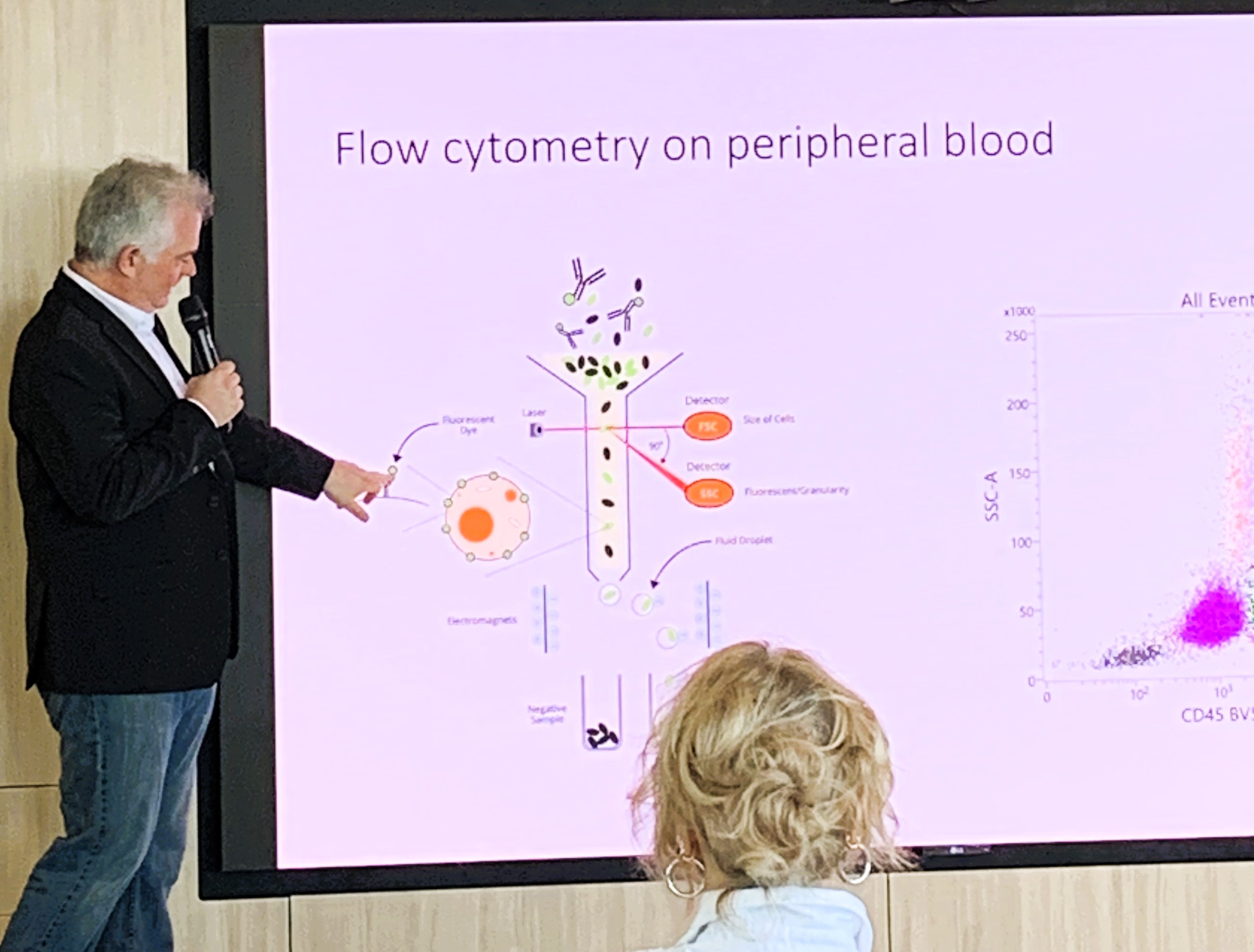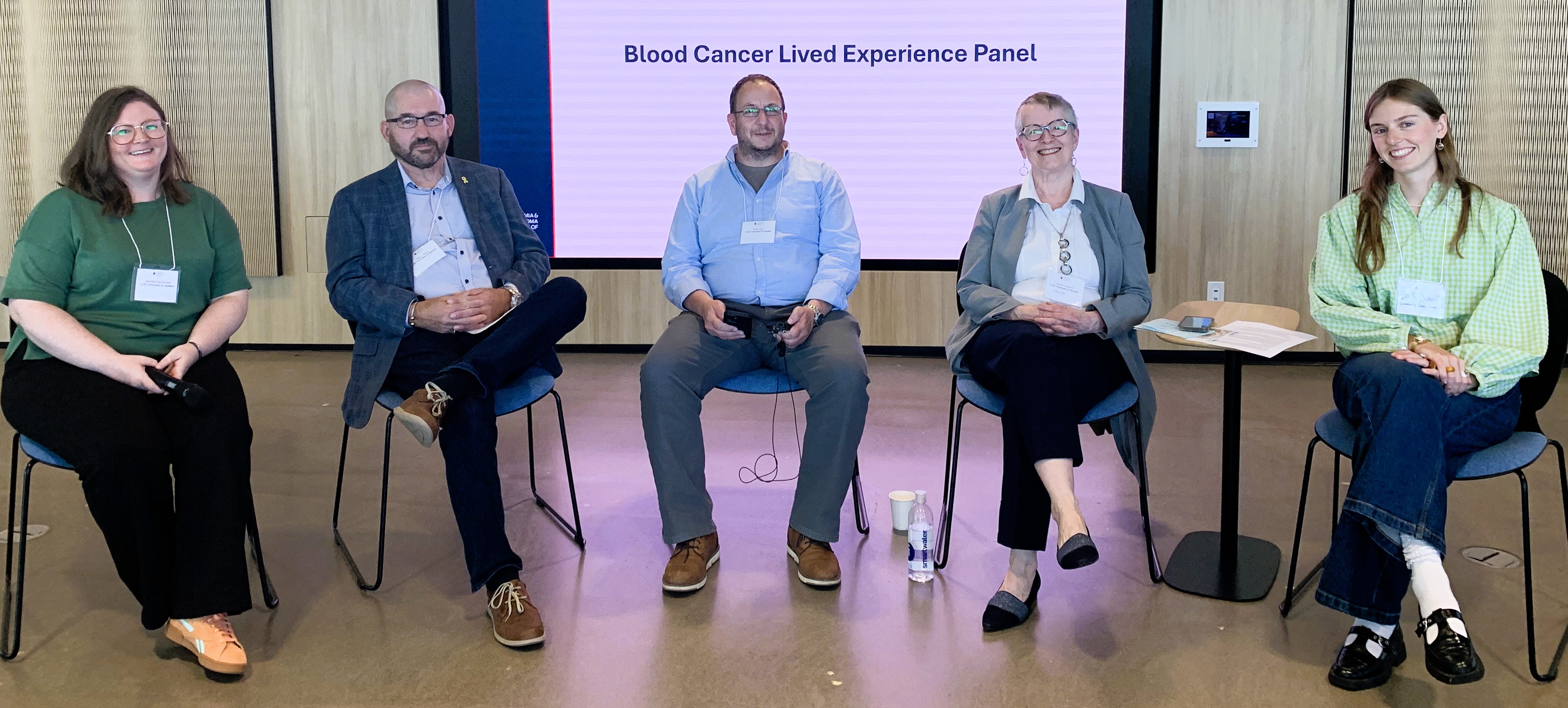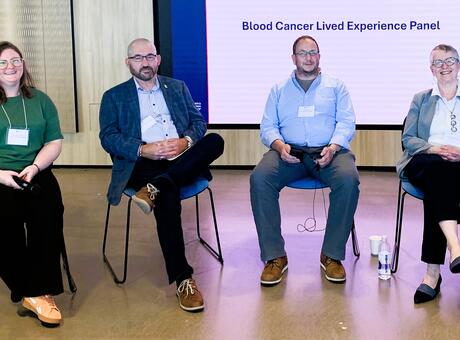Halifax Connect & Learn event for the regional blood cancer community

LLSC hosted Blood Cancer Connect & Learn education event for the regional blood cancer community on September 27, 2025 - the first in-person event we've hosted in Halifax since the pandemic. Almost 40 participants attended the event at the NS Health Innovation Hub some as far away as PEI, many of whom exchanged contact information to stay in touch.
The event was facilitated by Brooke Dewhurst, LLSC Community Services Lead for Atlantic Canada. The day's information sessions included:
- Understanding your blood cancer diagnosis – Dr. David Conrad, who is Division Head of Hematopathology at the IWK Health Centre, and the Section Head for Molecular Hematopathology in the Molecular Diagnostic Laboratory for Nova Scotia Health Authority.
- Strategies for managing fatigue and an introduction to integrative cancer care – ND Dr. Ellen Conte, naturopath and associate researcher with the Patterson Institute for Integrative Oncology Research.
- Panel discussion on lived experiences with blood cancer: Camille Cameron (myeloproliferative neoplasms); Barry Yhard (Hodgkin lymphoma); Steve Ayre (acute myeloid leukemia); and Jennifer MacDonald (chronic myeloid leukemia).
Presentation notes from the event can be downloaded here (PDF).

Many people shared that they were deeply impacted by the event, with one participant sharing "this was the most inspiring thing I've witnessed in a long time."
Participant Patricia Leyanaar said "all of the presentations were meaningful; I was especially interested hearing from Jennifer MacDonald, my fellow CML diagnosee. She used an expression that resonated so much with me: 'imposter syndrome.' That is how I feel during our virtual support groups among people with lived experience so much more intense than mine. I think I can understand my own experience better now, and perhaps even will be able to explain it to others better."
